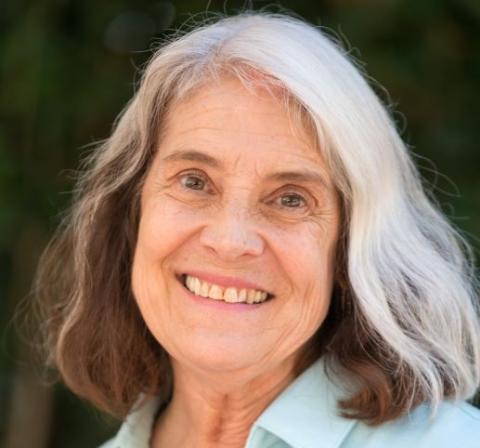
Professor Wendy Wade is a Champion for Children of Addiction

For four decades, faculty member Wendy Wade, PhD, has been involved with the field of addiction studies, specifically with children of addiction (COA). She was employed in the early days of the COA field and has heart-wrenching stories of interventions that will bring tears to your eyes. As a faculty member at Palo Alto University (PAU), she is positioned to educate and inspire the next generation of counselors working with the vulnerable, young individuals affected by parental substance abuse.
In 1979, with a new master’s degree in psychology from Santa Clara University, Dr. Wade applied for a position working with children of parents struggling with addiction. She found herself in a relatively new field, with a significant amount of potential, and room for impact.
In an era when understanding addiction’s impact on families was still evolving, Dr. Wade was dedicated to her young charges and created safe spaces for them to explore, share, and heal.
The children often gathered in educational support groups where art, play, and acting were primary interventions. One activity had children carry a backpack full of painted rocks, labeled with different emotions and problems. They were asked to describe what it was like carrying the backpack. They said it was heavy, it made them cranky, and that they couldn’t play with their friends or be a swimmer or a ballerina since they would have to carry it all day and night, every day.
“But then we tell them, your parents have been carrying around a bag like this for a really long time,” said Dr. Wade. “How long do you think? The typical answer is ‘since they started drinking.’ But one boy said, ‘my mom started carrying this when she found out I was in her tummy.’ And so, I said, ‘Well, what really happened is they've been carrying around a bag like that since they were little kids your age, maybe probably even before that. So, if they've been carrying it around since they were little kids, could anything in this bag be your fault?’ And then it gets really quiet.”
As the years unfolded, Dr. Wade's professional roles ranged from elementary school teacher, family work in community mental health clinics, and private practice to even renowned treatment centers like the Betty Ford Clinic.
Addiction, primarily alcoholism, has been acknowledged by the medical profession for more than 150 years, with the Journal of Inebriety dating back to 1876. But the American Medical Association only declared alcoholism an illness in 1956 and a disease in 1987. First Lady Betty Ford vastly increased visibility for the field of addiction studies when she shared her struggles with alcoholism after her husband left office. She founded the Betty Ford Clinic in 1982.
Despite the initial momentum gained in the 1980s, the availability of educational support groups for children of addiction has dwindled, often due to financial constraints and shifting priorities in treatment centers. The opioid crisis significantly increased the visibility of children of addiction as the foster care system became overloaded. Along with that came some increases in public funding and media attention.
“Unfortunately, there is still limited awareness in the counseling field about the particular needs of this marginalized cohort, so too few COAs are receiving the targeted care they need and deserve,” said Dr. Wade. “But, along with the challenges and traumas these children experience, they develop resiliencies and strengths that need to be recognized, acknowledged, and fostered along with developing new ways of living with resiliency."
Recently, Dr. Wade has presented at the National Board of Clinical Counselors, Alabama School of Addiction and Drug Studies, and the Western Symposium on Addiction Studies. She is also national trainer and co-developer of curriculum for the National Association of Children of Addiction.
As Dr. Wade continues her work in the PAU Counseling program, she remains a compassionate advocate for children impacted by addiction, and an educator devoted to the next generation of counselors who will lift the weight of those backpacks off countless children.